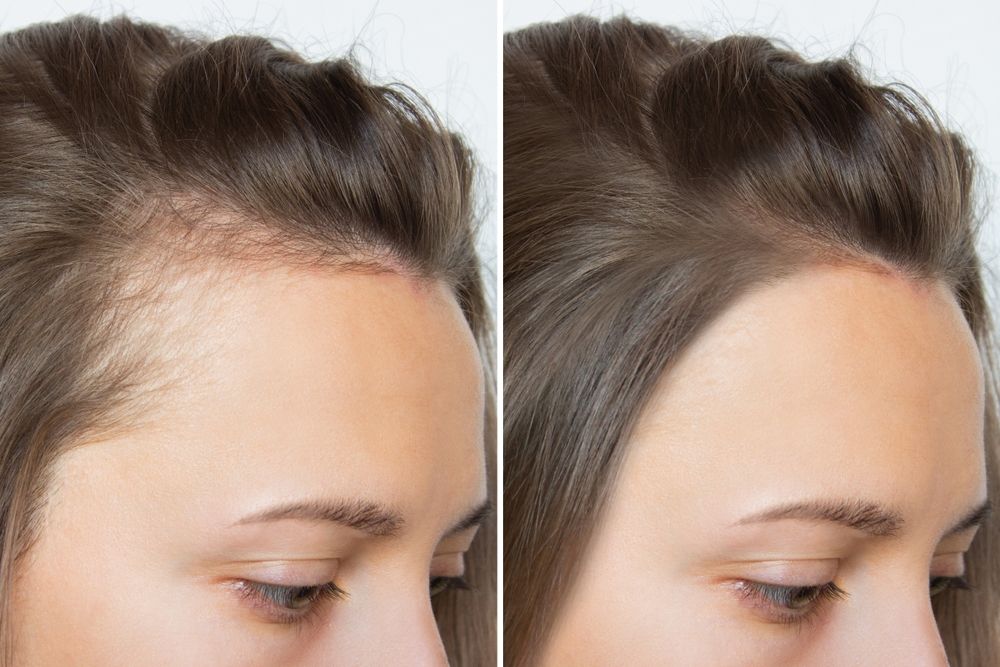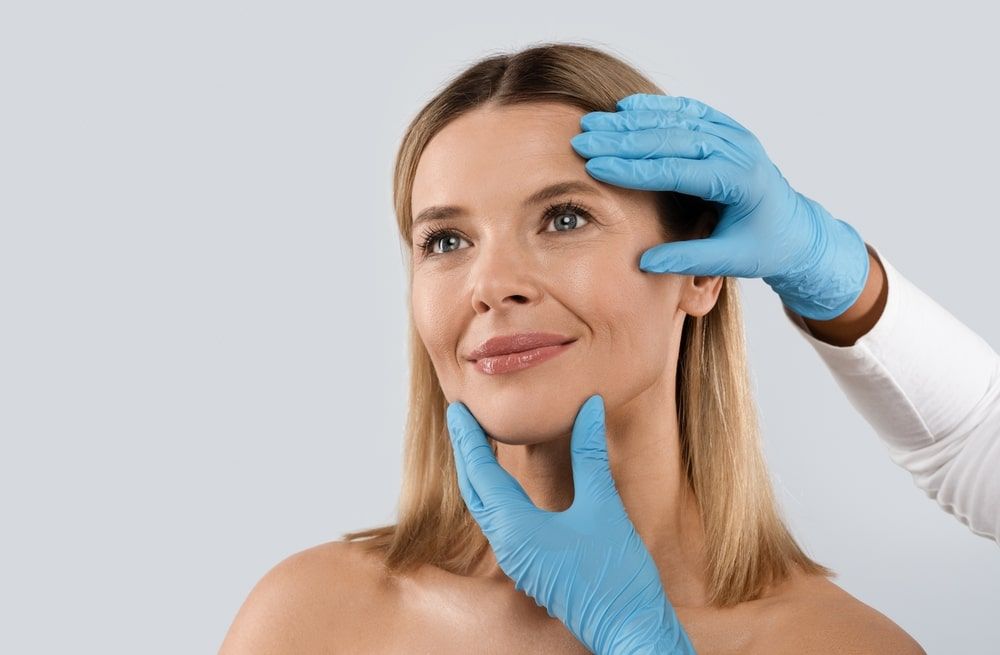A successful hair transplant doesn’t start or end in the operating room—it’s a process that relies heavily on how well you take care of your scalp and hair both before and after the procedure. Strong, healthy hair follicles respond better to surgery and yield more natural-looking results. Likewise, proper care post-surgery ensures those transplanted hairs settle in and grow the way they’re supposed to. At North Charlotte Plastic & Reconstructive Surgery in Huntersville, NC, many individuals considering a hair transplant want to know how to protect their investment and keep their hair looking its best for the long haul. This guide covers essential habits that support hair health throughout the entire process.
Get Your Scalp Ready Before Surgery
The condition of your scalp and existing hair plays a significant role in how well your transplant will go. In the weeks leading up to your procedure, it’s important to create an environment that supports strong follicle growth. That means keeping your scalp clean, well-hydrated, and free from inflammation. Use gentle, sulfate-free shampoos and avoid harsh styling products that can cause buildup or irritation. If you have dandruff or other scalp conditions, get them under control before the surgery date—chronic flaking, redness, or oiliness can interfere with healing and graft survival.
You should also avoid hair treatments that involve chemicals, like dyes, relaxers, or perms, for at least a couple of weeks before surgery. These can weaken the hair shaft and stress the scalp. Likewise, scaling back on hot tools like flat irons or curling wands will minimize damage. The healthier your hair and scalp are going in, the better the results you can expect from the transplant.
Nutrition Matters More Than You Think
Hair health is closely tied to nutrition. The hair follicles are living structures that need protein, vitamins, and minerals to function properly. Before and after a transplant, prioritize a diet that supports hair regeneration and circulation. Protein is essential—hair is made mostly of keratin, a type of protein—so make sure you’re getting enough from lean meats, eggs, legumes, or dairy products. Iron, zinc, and biotin are also key. Iron helps deliver oxygen to follicles; zinc aids tissue repair; and biotin supports keratin production.
In addition, make hydration a daily priority. Dehydrated skin and scalp are more prone to irritation, which can compromise healing. Omega-3 fatty acids, found in fish, flaxseed, and walnuts, can also help reduce inflammation and support skin health. If you’re unsure whether your diet is hitting all the marks, a multivitamin formulated for hair health may be a useful supplement. That said, always consult a healthcare provider before starting any new regimen, especially before surgery.
Avoid Smoking and Alcohol
Smoking and excessive alcohol use are two of the biggest threats to a healthy hair transplant. Nicotine restricts blood flow to the scalp, which means transplanted follicles may not get the oxygen and nutrients they need to survive. The result? Higher risk of graft failure and poor hair growth. Alcohol, meanwhile, dehydrates your body, impairs healing, and can increase the risk of bleeding during and after surgery.
Ideally, you should stop smoking and drinking at least one to two weeks before your transplant and continue avoiding both during your recovery. If quitting smoking is difficult, this could be a good moment to reach out for professional help. Many hair transplant specialists won’t even perform the surgery unless you can commit to a smoke-free healing period. Taking this seriously can significantly improve your final outcome.
Post-Surgery: Handle Your Scalp With Care
The first two weeks after a hair transplant are critical. This is when the transplanted follicles are at their most vulnerable. You’ll likely be instructed not to touch or scratch your scalp—even if it itches—as this can dislodge grafts. Sleep with your head elevated to reduce swelling, and avoid any activities that cause sweating, like working out or spending time in hot environments.
Your surgeon will provide a washing routine that typically starts with gentle rinsing and progresses to a mild shampoo after several days. Follow these steps exactly, as they’re designed to protect the healing follicles while keeping the area clean. Don’t return to your regular shampoo and styling products until you’re told it’s safe. Patience is crucial—trying to rush back into your normal grooming habits can compromise the outcome.
Keep Up With Long-Term Scalp Maintenance
Even after you’ve healed, the work isn’t over. Transplanted hair behaves like normal hair, but the scalp still needs regular care to stay healthy and support long-term growth. Use nourishing shampoos and conditioners with minimal harsh chemicals. Look for ingredients like niacinamide, panthenol, and natural oils that moisturize without causing buildup. Avoid tight hairstyles that pull on the roots and create tension, which can lead to traction alopecia.
Scalp massage can be beneficial when done gently—it promotes circulation and can improve follicle function. However, any aggressive rubbing should be avoided. If you use styling tools or products, make sure to space out their use and always wash them out thoroughly to prevent buildup. And just like before surgery, eating well and staying hydrated continue to matter. Think of it like taking care of a new garden: healthy roots lead to strong, lasting growth.
Don’t Skip Follow-Up Appointments
After the transplant, you’ll likely have scheduled check-ins to monitor progress. These visits are more than just formalities—they help identify any issues early, whether it’s signs of infection, poor graft survival, or irregular growth. Photos may be taken to track how your hair is growing over time. If you’re not seeing results at the expected rate, your provider might recommend supportive treatments or adjustments.
Some individuals may also benefit from ongoing maintenance options like platelet-rich plasma (PRP) therapy, topical medications, or oral supplements. These aren’t mandatory for everyone, but they can enhance the outcome for those who need extra support. Discussing your concerns and goals openly during follow-ups ensures you stay on the right track and get the best possible long-term results.
Lifestyle Habits That Support Lifelong Hair Health
Your hair transplant is only part of the picture. How you live day-to-day affects the longevity of your results. High stress levels, poor sleep, or crash dieting can all take a toll on your hair. Stress, in particular, has been linked to increased shedding through a condition called telogen effluvium, where more hairs than normal enter the resting phase of the growth cycle.
Make a point to prioritize rest, find stress outlets that work for you (like exercise, journaling, or spending time in nature), and avoid dramatic weight fluctuations. All of these habits feed into the overall health of your body—and by extension, your hair. Remember, the healthier your scalp and hair are in general, the longer your transplant results are likely to last.
Whether you’re preparing for hair restoration or looking to maintain your results in Huntersville, NC, a consistent and thoughtful approach to hair care makes a big difference. At North Charlotte Plastic & Reconstructive Surgery, patients are reminded that surgery is just one part of the equation. Daily choices matter—and they add up.
Resources:
- Trueb, R. M. (2003). The Impact of Nutritional Deficiencies on Hair Loss. Dermatology Practical & Conceptual.
- Rassman, W. R., & Bernstein, R. M. (2002). Follicular Unit Transplantation: 2002 Update. Dermatologic Surgery.
- Jimenez, J. J., & Ruifernandez, J. M. (1999). Distribution of Human Hair in Follicular Units: A Mathematical Model for Estimating Follicular Unit Density. Dermatologic Surgery.



